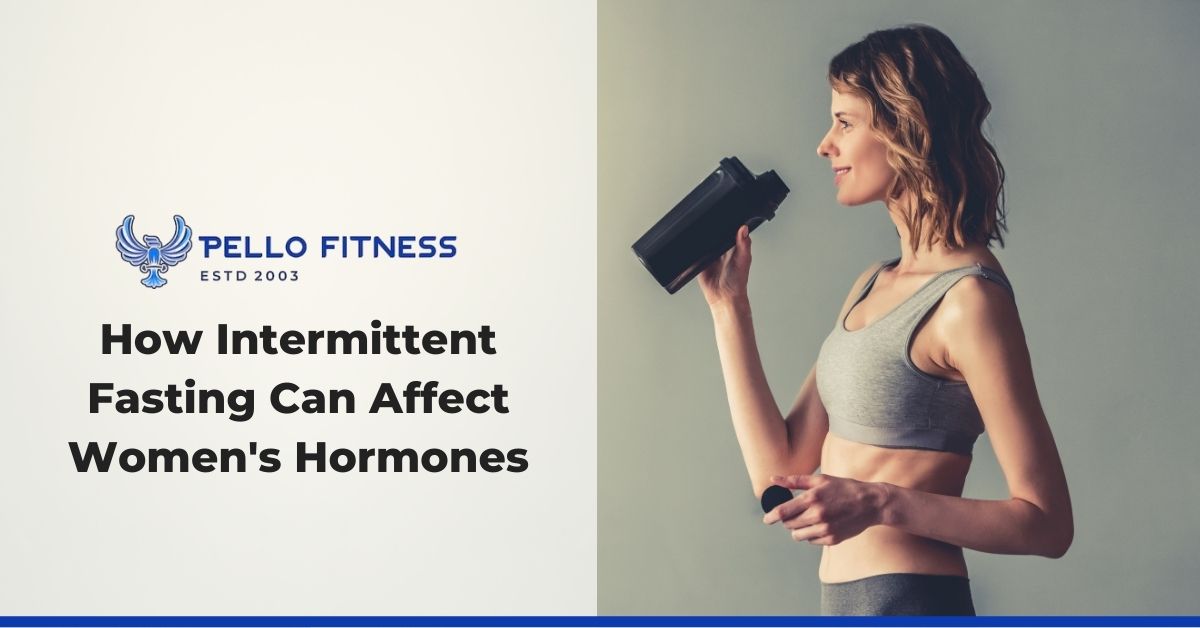|
You might have come across a new weight-loss method called intermittent fasting, sometimes abbreviated to "IF". In this article, we're going to talk about what intermittent fasting is, review some of the research that suggests it may work differently for women than for men, and draw a conclusion about whether this is the right option for your weight loss goals. What Is Intermittent Fasting?Simply put, intermittent fasting is about not eating for an extended period. This could mean skipping a meal or even a whole day of eating. There are eating windows and fasting windows, and the idea isn't much more complicated than that. Some diets, like 16:8, have a 16-hour fasting window and an 8-hour eating window. The 5:2 diet involves fasting for two days of the week. For some people, intermittent fasting could be seen as a revelatory way to manage hunger, body fat, and a host of other biological health markers, including regulating blood glucose and controlling blood lipids, such as triglycerides. However, for some people, which does seem to impact women more than men, it can lead to binge eating, metabolic disruption, losing their period, and even early-onset menopause. What Does the Research Say?The research that specifically looks at how women respond to intermittent fasting compared with men indicates that women are more sensitive to it than men. That means they are likely to struggle more with the hormonal disruption and find it less effective as a weight-loss tool than men. This could be due to the sensitive relationship between the hormones involved in reproductive health and energy balance. Also, women tend to eat less protein than men. When practicing intermittent fasting, they might eat even less again because they're eating less food overall. This matters because the amino acids that make up protein molecules are essential in the reproduction process. When these get too low, it can negatively affect the estrogen receptors, and a hormone called an insulin-like growth factor. Reducing protein can reduce fertility. But estrogen isn't just about fertility. Estrogen is involved in all sorts of metabolic functions, including, but certainly not limited to, appetite and energy balance. When doing something to cause a drop in estrogen levels like intermittent fasting, women could find themselves feeling more hungry and eating a lot more than they would if they were eating normally. Estrogens are critical regulators in lots of metabolic processes. Estriol, estradiol, and estrone are the three estrogenic metabolites. The ratio of these is found in changes during a woman's lifetime. Before menopause, estradiol - responsible for fat storage - is found in larger quantities than after menopause. That could be one reason women find it harder to lose body fat after menopause. Should Women Do Intermittent Fasting for Fat Loss?The research into intermittent fasting for women is a bit lacking. We don't have long term, large scale data from which to base our conclusions. There are some groups where intermittent fasting seems to be inadvisable, such as obese women with an inadequate blood sugar response and men and women with diabetes. Women seem to have a more pronounced stress response from fasting. Growing females, such as girls, teenagers, pregnant or breastfeeding women, or women trying to conceive, should also stay away from intermittent fasting. Similarly, if you have a history of disordered eating, are going through an incredibly stressful time at the moment, struggle with adequate sleep and rest, or are new to diet and exercise, it may not be the best choice for you. ConclusionIf you're curious about intermittent fasting and want to try it out, taking a gentle approach is an excellent place to begin. If you are utterly new to dieting and fitness plans in general, I'd highly recommend you seek the help and support of a fitness coach or a nutritionist.
You might start with keeping a record of your food for a few days, writing down how much you eat and when you feel hungry. This gives you an exact starting point. From here, you could try stretching the time between meals, pushing breakfast back to later in the day, or merely skipping one meal entirely. Pay close attention to how you feel, and stop immediately if you feel unwell. There's no one size fits all approach to losing weight, and what's worked for someone else may not feel right for your body. Getting the proper support is key to finding a method that's enjoyable and works for you.
1 Comment
7/24/2021 08:01:19 pm
Amazing blog, I'm very happy to read this blog. Basically, I know new many things to read this blog. I strongly believe that the blog delivers the best information to its audience.
Reply
Leave a Reply. |
AuthorZach Pello Archives
June 2023
Categories |
Services |
Company |
|
|
© COPYRIGHT 2018. ALL RIGHTS RESERVED.
|
Website Design by My Personal Trainer Website
|


 RSS Feed
RSS Feed